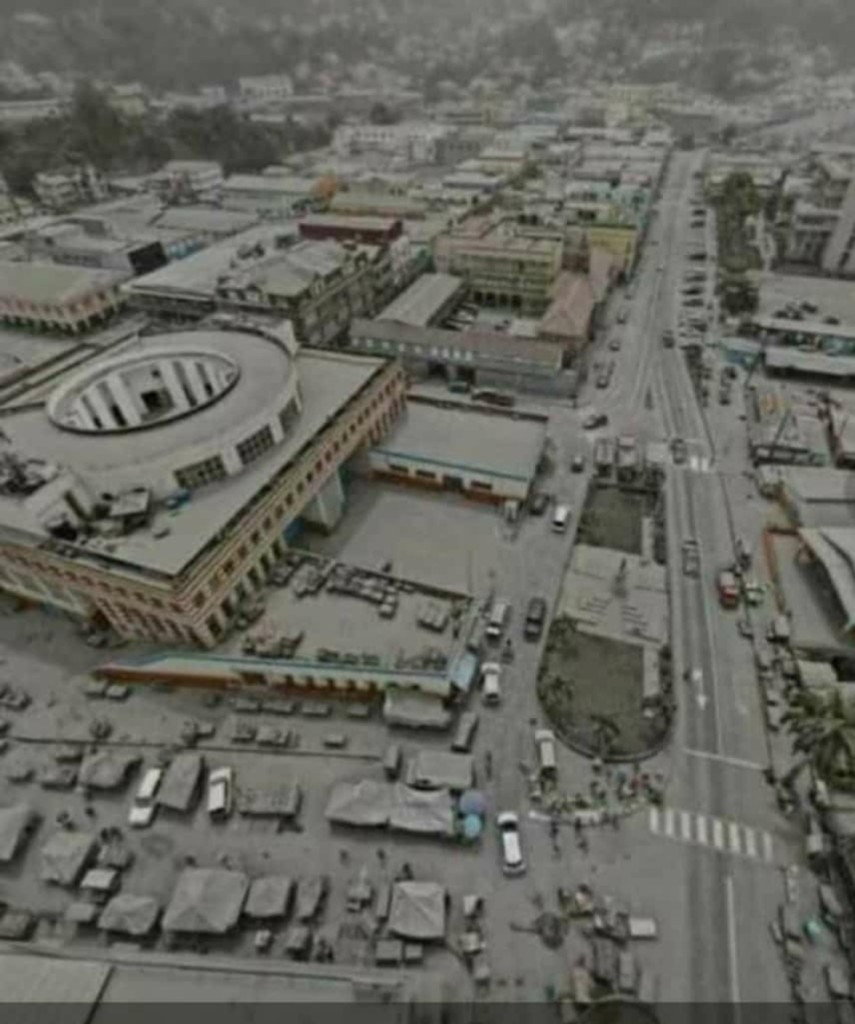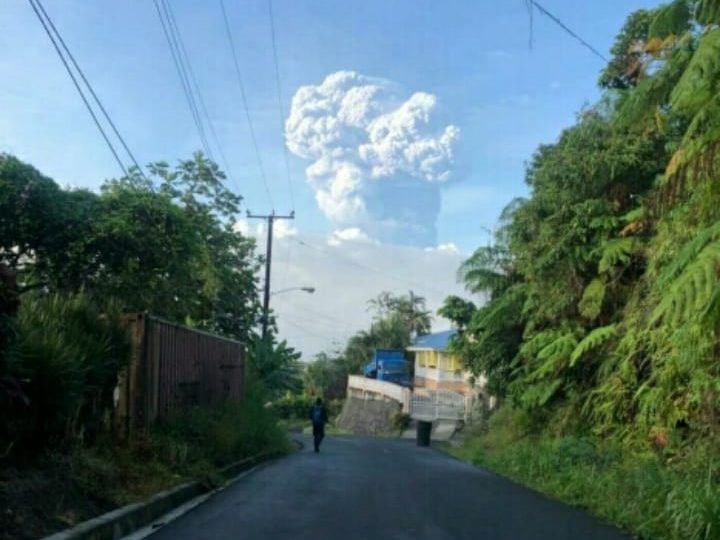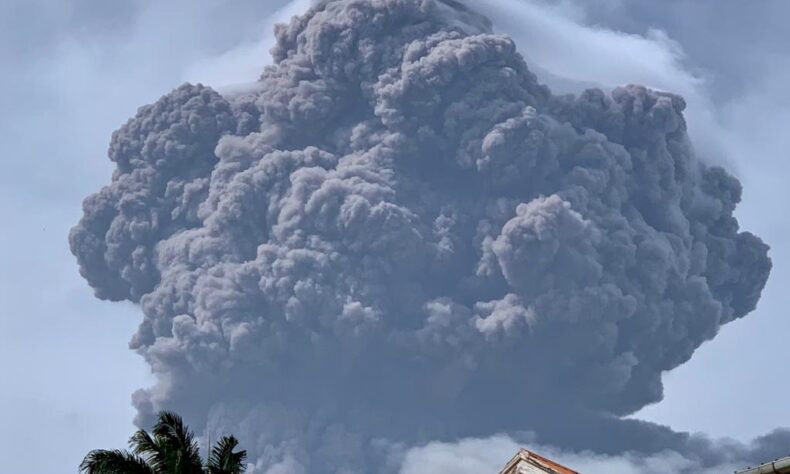The active volcano La Soufrière continues to erupt in St. Vincent, and evacuations are well underway. The ash that covers the country is contaminating the water and air quality. Light rain mixes with the pollution and makes walking a hazardous condition akin to slipping on ice. Families lucky enough to be beyond the Red Zone shelter in their homes; those who were not so lucky shelter together formally. The agricultural region has been devastated. Enna and Yvette are safe from the immediate blasts, but they face water shortages and dangerous conditions.

No further than 50 miles north of La Soufrière, the volcanic ash is showering down upon neighboring St. Lucia. Dangerous conditions impact each breath. “The ‘drizzle’ had us unable to speak without chewing and crushing up ash in our teeth. Truly, we are sister islands,” says Sheila, who lives within an eyeshot of the blasts. She and Clara remain safe from the explosions, but not from its reach.

The crisis in St. Vincent builds on a year of tremendous hardship. Summer of 2020 brought to St. Vincent its most deadly outbreak of Dengue on record. A temporary reprieve of Covid-19 during the latter months of the year kept schools and businesses open, but the bringing of the new year was not so forgiving. Community spread drove infection rates dramatically on the main island that is home to more than 100,000 people living together in 133 square-miles.
The Eastern Caribbean region remains in crisis as neighboring islands and response groups set up shelter, send supplies, and prepare ships for transporting individuals and goods. Funds are being raised by the OECS to support direct relief efforts for those in need. Hands Across the Sea is raising funds to help the schools and libraries impacted by the blast in St. Vincent and St. Lucia. Donations will support our capacity to replace books and work with schools to get their children’s libraries up and running again.

